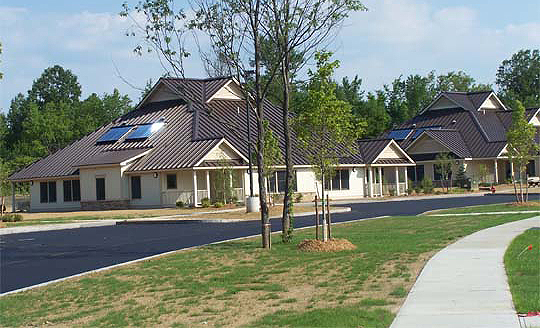As sovereign nations, tribes are the direct recipients of federal funding from the United States Department of Housing and Urban Development. Each tribe may designate an entity to administer its housing programs with these federal dollars, referred to as a Tribally Designated Housing Entity, or TDHE. The entity designated by the tribe to receive HUD funds must comply with the rules and requirements of the program.
The Native American Housing Assistance and Self Determination Act of 1996 (NAHASDA) PL104-330 became a law on January 3, 1996, and is the governing statute of the Office of Native American Programs. The intent of the law was to provide federal assistance for Indian tribes in a manner that recognizes the right of tribal self-governance. NAHASDA gave tribal governments’ greater control over the housing program by consolidating a number of federal housing programs that provided funding primarily to low-income Native Americans, into a single, formula-driven recurring block grant program. Under the Indian Housing Block Grant, tribes self-determine the plan, design, construction and maintenance of affordable housing on Indian reservations and Native communities
Regulations for NAHASDA, which are negotiated with tribes after each reauthorization of the statue, can be found in the Code of Federal Regulations at 24 CFR Part 1000. HUD’s Office of Public and Indian Housing (PIH) issues Notices to articulate regulations in more detail. Notices are reviewed and approved by HUD’s Office of General Counsel. HUD’s Office of Native American Programs issues Program Guidance, which are less formal interpretations of a regulation and is not vetted by the Office of General Counsel.
ONAP is not the only Tribal funding source available from HUD. In fact, Tribes are considered eligible and may qualify for the below grants offered by other HUD program areas. View a full listing of HUD programs.
Questions? Contact the ONAP Web Manager.












